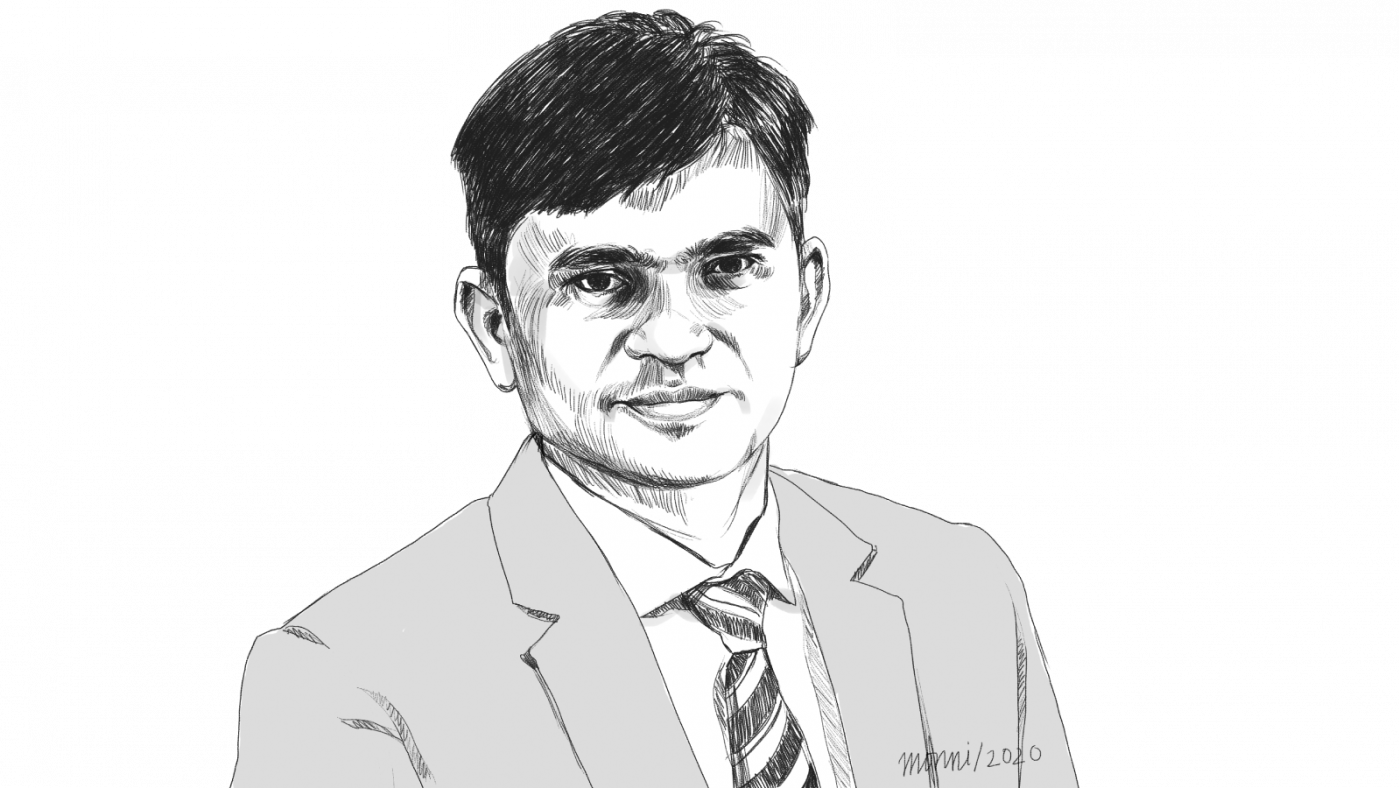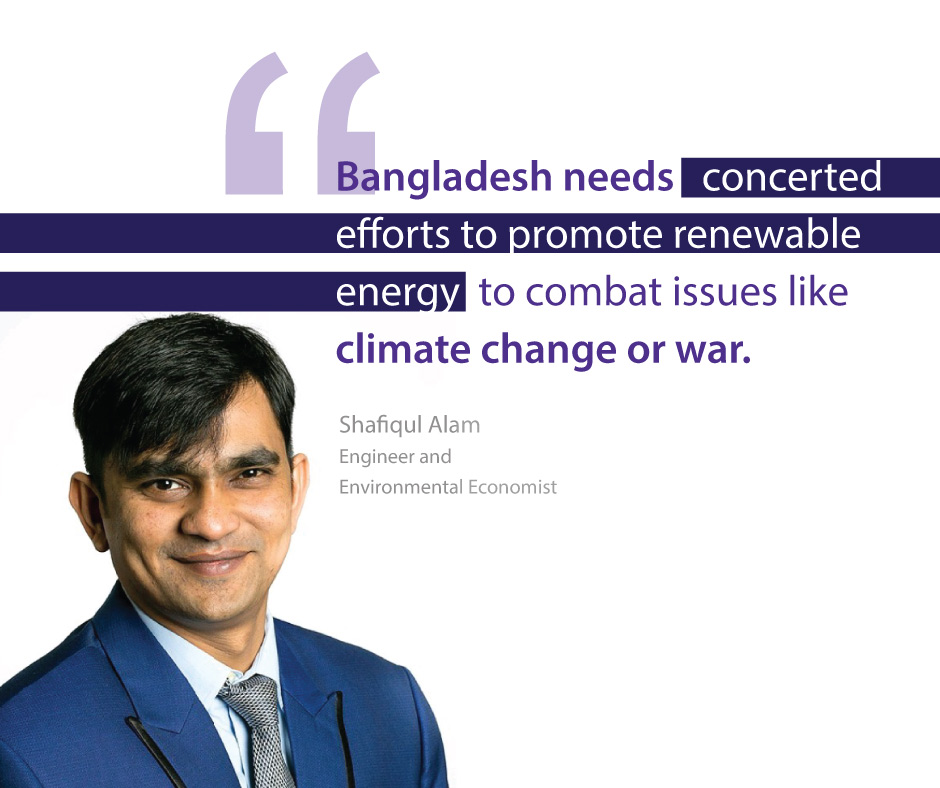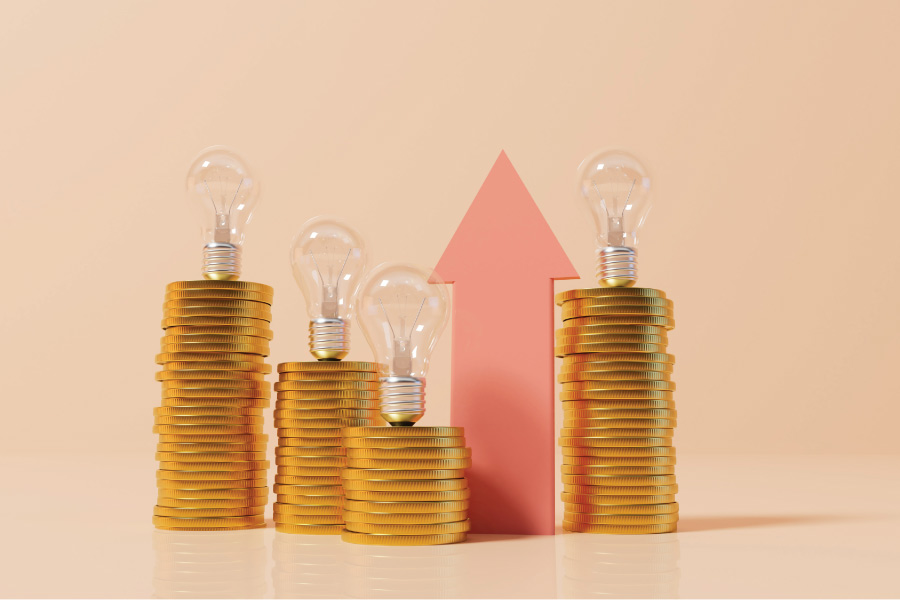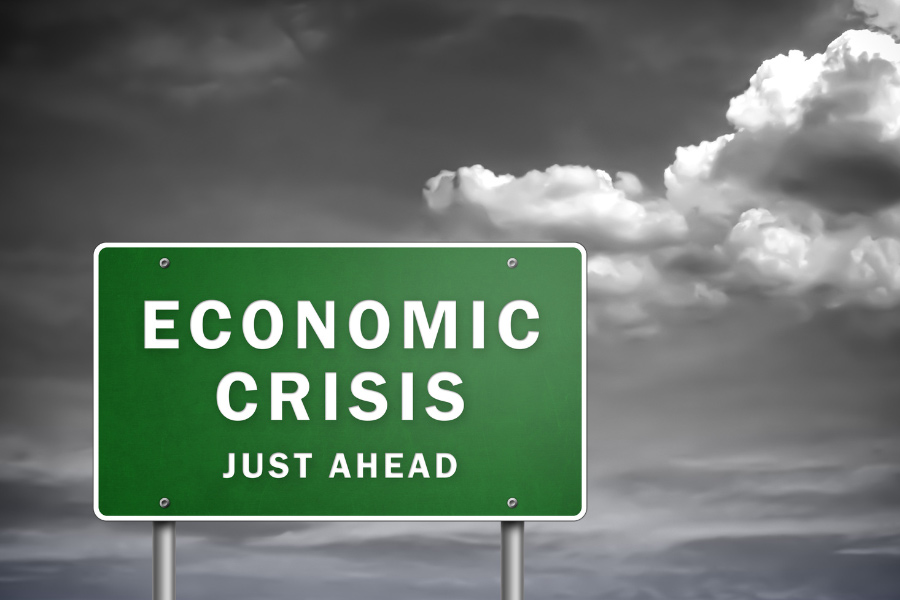The current global energy disorder along with the elevated prices of fossil fuels in the international markets should be an eye-opener for Bangladesh to swiftly promote renewable energy and energy efficiency
This Opinion Editorial was first published in The Business Standard on 16 September, 2022.
Shafiqul Alam
The Central Bank of Bangladesh has a green refinance scheme, that allows banks and non-bank financial institutions (NBFIs) to on-lend to project developers/entrepreneurs seeking finance for green interventions, such as, renewable energy, energy efficiency, green industry, etc. at a lower than the prevailing market rate. While originally initiated in 2009, the refinancing scheme has thus far undergone a series of changes, starting from interest rate revisions to a broadening of the areas of finance and the size of the revolving fund.
Yet, for years, one of the major criticisms surrounding the green refinance scheme has been regarding the interest rates for on-lending by commercial banks and NBFIs. Private sectors have had the impression that interest rates should have been substantially reduced to make clean energy projects viable.
In particular, they suggest that green interventions should be incentivised through concessional interest rates. Another argument that we often come across in different forums is that the loan tenor for clean energy projects should be increased, as the payback of clean energy projects, like solar and wind, is more than five years.
However, in April 2020, as part of the stimulus package for green recovery from Covid-19, the Central Bank reduced the interest rates under the green refinancing scheme. The revised interest rates ranged from 7-8%. To be specific, the rates were 7%, 7.5% and 8% for loan tenors of less than five years, and eight years and more than eight years, respectively.
Furthermore, the size of the revolving fund was increased to TK400 crore from the initial Tk200 crore. These revisions were significant in creating traction for both renewable energy and energy efficiency in Bangladesh.
In a recent move, the Central Bank has further reduced interest rates. With the latest round of revision, industries and entrepreneurs would be able to avail of refinancing at an interest rate between 5-6%, contingent upon the loan tenor. According to newspaper reports, from now onwards, the applicable interest rate will be 5% for a loan period of less than five years and will rise up to 6% when the loan tenor is more than eight years.
Now that the interest rates have been remarkably reduced, and the provision for loan tenor exceeding eight years was already included in the refinance scheme, renewable energy projects by the private sectors should get a major boost. On the other hand, the net metering guidelines of Bangladesh allow industries and commercial buildings to offset their electricity bills at a good tariff against the electricity generated from solar rooftop systems. Alongside this, the low cost of borrowing will make solar rooftop projects more viable.
Additionally, energy efficiency opportunities in Bangladesh are very well-documented but the cost of borrowing was one of the drags for energy efficiency projects at industry levels. But, at current interest rates of 5-6%, industrial energy efficiency will certainly be a lucrative option.
And apart from the green refinancing scheme of the Central Bank, the Infrastructure Development Company Limited (IDCOL), as a Direct Access Entity (DAE) of the Green Climate Fund (GCF), has already got approved the funding proposal worth $340 million, including a small grant component, for improving energy efficiency in the garment and textile industries of Bangladesh.
Within the framework of the GCF project, IDCOL is expected to provide loans of around $333 million to the garment/textile industries aiming to replace inefficient machines with efficient ones. The cost of borrowing, supported by the aforementioned GCF project, will be less than the prevailing market rate.
Notably, IDCOL has other programmes to support solar rooftop projects at a good rate. Hence, industries will find sufficient rationale to work on renewable energy and energy efficiency, especially with regard to cutting energy bills. The Ukraine crisis-led measures in Bangladesh, such as load shedding, should also be an impetus for the industries to pursue both solar energy and energy efficiency now rather than later.

From our national perspective, we have encountered different problems in increasing the share of renewable energy on the national grid. The high cost of renewable energies and land constraints are some of them. However, both solar and wind energies are very competitive today.
In tandem, energy efficiency has the potential to deliver a multitude of benefits. And the current global energy disorder along with the elevated prices of fossil fuels in the international markets should be an eye-opener for Bangladesh to swiftly promote renewable energy and energy efficiency.
As the national grid is heavily reliant on imports, and in case the Ukraine-Russia issue is not resolved anytime soon, we may find it extremely difficult on the energy front compared to now. Of course, during the winter we will require significantly less electricity due to reduced cooling demand. And fortunately, we don’t need to run heaters during the winter.
Nevertheless, it is high time we spearheaded measures to make our energy system more sustainable and less reliant on imports. To that end, quick implementation of 1-2 GW of solar rooftop systems could considerably reduce grid electricity consumption and associated fossil fuel combustion without affecting agricultural lands.
Utility-scale projects of several hundred MW are currently under implementation and/or planning as mentioned on the website of the Sustainable and Renewable Energy Development Authority (SREDA). Given the challenges we are experiencing now, the government should encourage project developers to ramp up their implementation efforts.
In conclusion, the Central Bank has done the right thing to make energy efficiency and renewable energy investment more favourable in the country. Now, the onus is on the private sector to take advantage of cheap loans in undertaking renewable energy and energy efficiency projects and thus help the government in minimising future fuel import bills and external price shocks.
Well, the size of the refinancing scheme is only Tk400 crore but it is a revolving fund, and can be replenished by the Central Bank as needed.
Shafiqul Alam is an Environmental Economist; He is an Energy Fellow of the National Bureau of Asian Research, US.
Disclaimer: The views and opinions expressed in this article are those of the author and do not necessarily reflect the opinions and views of The Business Standard.





